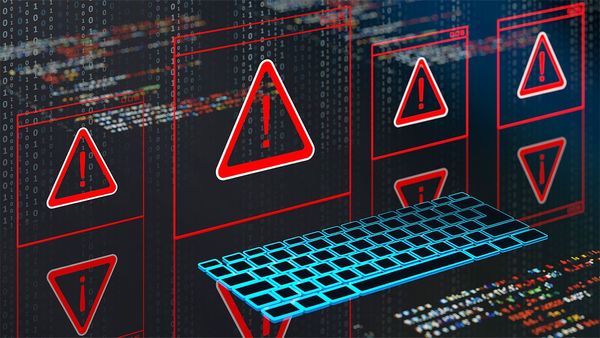Nuclear energy stocks spent much of 2024 running at the top of the S&P 500. Constellation Energy, Vistra and other new nuclear-focused companies rode a wave of excitement as Big Tech scrambled to find the electricity needed to power its artificial intelligence ambitions.
Constellation Energy shares shot up 91% last year and Vistra stock rocketed 258%, placing both among the top S&P 500 stocks and the best 100 stocks of 2024. Though regulatory hurdles and Trump-administration unknowns loom in the coming year, analysts remain bullish on nuclear energy stocks in 2025. They note that forecasts show electricity demand is not slowing down anytime soon, given the growth in AI and data centers.
Beyond Big Tech, Constellation scored another big win Thursday when the U.S. General Services Administration awarded it a 10-year, $840 million contract to supply power to more than a dozen federal agencies. The GSA said the contract showed its support for expanding nuclear energy capacity.
Sophie Karp, senior analyst at KeyBanc, told IBD that the nuclear industry is in a unique position because "you can't really build any more (full-scale nuclear power plants) right now. We're seeing a lot of tech companies coming out, partnering with infrastructure funds, trying to speed up the development of alternative nuclear and things like that.
"The owners of existing nuclear power plants will just see the intrinsic value expanding," Karp said.
Nuclear power is a business with many barriers to entry. Those barriers make it a valuable niche. Karp believes this "intrinsic value" for Constellation Energy and other companies with existing nuclear operations will continue expanding in 2025. Constellation operates nuclear reactors in the Midwest and Eastern states.
AI And Nuclear Energy Stocks
Artificial intelligence applications use up immense amounts of energy. The demand comes at an opportune time for the nuclear power industry. Nuclear power has declined steadily in recent years, with 13 plants closing in the U.S. since 2013. Accidents at Three Mile Island, Chernobyl and Fukushima loomed large in the minds of utilities and their insurers. Long-term safety and environmental concerns over storing and disposing of spent radioactive fuel rods also created resistance to new nuclear plants.
Meanwhile, the idea of restarting existing nuclear plants and the promise of a new breed of small modular reactors have attracted a powerful fan base, including Bill Gates, Sam Altman and Jeff Bezos.
And the demand is well on its way. In the U.S., McKinsey & Co. projects that energy demand from data centers, particularly from centers powerful enough for AI programs to "train" themselves, will grow from around 4% of total energy demand now to 11% to 12% by 2030.
AI Is Fueling A 'Nuclear Renaissance.' Bill Gates And Jeff Bezos Are In The Mix.
A Grid Strategies report in early December pegged U.S. electricity demand growth of around 16% in the next five years, with about 128 gigawatts of new capacity needed by 2029. Grid Strategies previously predicted a 39-gigawatt demand increase.
Natural gas is an attractive option, according to analysts. But to ensure they have the energy supplies to run their data centers, many tech companies are investing in or partnering with nuclear power providers.
"I think what you saw in 2024 was a bit of catch-up by investors to recognize that owners of nonregulated nuclear plants, their risk profiles have significantly decreased," Wells Fargo analyst Neil Kalton said in an interview. "This realization, combined with the AI hype, led to these companies having a great year."
S&P 500 Stocks Catch Nuclear Fever
Nuclear energy stocks surged Thursday following news of Constellation's General Services Administration deal. The group had also rallied in October, after Constellation Energy on Sept. 20 sealed a two-decade contract with Microsoft to provide nuclear power for the tech giant's data centers.
At the time, Morgan Stanley analysts proclaimed that the Constellation-Microsoft deal "proves out the value of nuclear power for hyperscalers, with higher prices for future deals" with the massive data centers. On Thursday, a press release from GSA administrator Robin Carnahan said, "We're demonstrating how the federal government can join major corporate clean-energy buyers in spurring new nuclear energy capacity."
Constellation Energy stock is up 14% since the Microsoft deal, while Vistra shares have surged 61%. Vistra operates a broad portfolio of power-generation assets, and says it competes in "all of the major competitive wholesale markets in the country."
In September and October, Amazon.com, Alphabet and Oracle all announced investments in developing a new breed of power plants called small modular reactors, or SMRs. No operating SMRs now exist, but a number of companies are developing the technology.
SMRs aim to provide power at the company level, drastically reducing the time and cost of permitting, constructing and operating full-scale nuclear facilities.
In early December, Meta Platforms announced plans to build a massive $10 billion artificial intelligence data center in northeast Louisiana. The project will be Meta's largest data center, according to the Facebook parent. Before the deal, Meta published a request for proposals for nuclear energy developers to provide one to four gigawatts of new nuclear generation capacity by the early 2030s.
Best IBD 50 Stocks To Watch
"We believe that nuclear energy can help provide firm, baseload power to support the growth needs of the electric grids that power both our data centers (the physical infrastructure on which Meta's platforms operate) as well as the communities around them," Meta said in a blog post.
Wells Fargo's Kalton said "2025 is going to be a year where they kind of have to execute on" delivering these power-generation capabilities. But the bang from upcoming new contract deals isn't expected to be as pronounced as were the stocks moves in the last year.
"We think that the kind of returns we saw in 2024 are not likely to be replicated in 2025," Kalton said. "But that doesn't mean that we don't think that the stocks could still continue to perform."
Nuclear Power: A Scarce Resource
Still, fresh off its megadeal with Microsoft, Constellation Energy Chief Executive Joe Dominguez said on the Q3 conference call in November that the "intensity of our negotiations with hyperscalers and others keeps going up and up."
"Our entire team is focused on executing transactions and supporting data centers development," Dominguez added.
Management also said on Constellation's Q3 earnings call that base annual earnings will grow by at least 13% through 2030. The company previously forecast profit growing by at least 10% a year through the end of the decade.
Founded in 1999, Constellation Energy has gone through several phases. The company now operates 21 nuclear reactors at 12 power-generation sites across the Midwest to the mid-Atlantic and the Northeast. That's a sizable share of the U.S. nuclear industry. The Energy Information Administration reports a total of 94 reactors operating in the U.S. at 54 power-generation sites.
Stocks To Buy And Watch: Top IPOs, Big And Small Caps, Growth Stocks
Karp told IBD that Constellation Energy does not necessarily need more hyperscaler deals to push CEG shares and other nonregulated nuclear energy stocks higher in 2025.
"I don't think it's that important," she said. "It's not necessary to sign every power plant in their portfolio to a hyperscaler to have them valued as such."
Karp added, though, that AI and data centers are important moving forward because this is what "underpins the underlying growth rate."
Karp says that this is the first time in her experience that the industry accustomed to flat demand is seeing actual load growth.
"It is very exciting to see this type of turnaround where you actually have growth," she said.
Regulatory Battle Over Nuclear Supply Deals
To be sure, challenges are inevitable. Utilities American Electric Power and Exelon lodged protests against a $650 million deal last March between Amazon.com and Talen Energy. Talen was to furnish Amazon with a nuclear-powered AWS data center campus for which Talen's existing Susquehanna plant in Pennsylvania would provide dedicated power.
AEP and Exelon contended that the co-location arrangement bypassed federal charges incurred by grid operators. The Federal Energy Regulatory Commission agreed, rejecting the deal on Nov. 1.
While efficient, the scheme had "huge ramifications for both grid reliability and consumer costs," FERC Commissioner Mark Christie said in a statement.
Electric utilities, especially those with nuclear power plants, have seen demand and prices soar amid the rapid buildout of energy-intensive AI data centers. The FERC order suggests that regulators, worried about the impact of that buildout, may block or restrict at least some similar co-location deals.
Amazon and Talen are "exploring the whole suite of commercial and legal solutions" to move the project forward despite the FERC ruling, Talen Chief Executive Mac McFarland told analysts in mid-November.
Nuclear Energy Stocks Undeterred
McFarland's statement was the latest sign from nuclear energy providers that they are pushing back against the recent regulatory decision.
Vistra also signaled it continues to pursue co-location deals. Chief Strategy and Sustainability Officer Stacey Dore said on the company's Nov. 7 earnings call that the company was in early talks with some developers about adopting a portfolio approach.
"We might be able to pursue co-location deals at multiple sites and combine that with even building some new generation," Dore said. "We're in pretty detailed customer discussions at some of our nuclear sites."
Impact Of Trump Administration Policies
The change in administrations also raises questions. A number of Republicans and Democrats have signaled support for nuclear power. Thursday's GSA deal proved the Biden administration commitment to tripling U.S. nuclear energy capacity by 2050.
However, President-elect Donald Trump has voiced caution. Trump told podcast host Joe Rogan in a late October interview that he believes large nuclear reactor projects are too complex and expensive and that "there's a little danger in nuclear."
Yet Trump said at an August rally that "starting on Day One, I will approve new drilling, new pipelines, new refineries, new power plants, new reactors and we will slash the red tape."
"We will create more electricity also for these new industries that can only function with massive electricity," Trump said.
Sam Altman Nuclear Startup Continues Hot
Despite the lack of clarity from President-elect Trump, analysts broadly see bipartisan support for nuclear energy and do not expect a Trump administration to negatively impact nuclear energy stocks.
A key element for the industry is the nuclear production tax credit, known as the nuclear PTC, in the Inflation Reduction Act, or IRA. The tax credit sets a "quasi floor" price for nuclear of roughly $45 per megawatt through at least 2032.
The average wholesale price of power in the grid region where Three Mile Island is located was around $40 per megawatt-hour in 2023, according to the Energy Information Administration. In 2022, the Nuclear Energy Institute reported that the average total generating cost for nuclear energy was $30.92 per megawatt hour.
While Trump and fellow Republicans intend to revise the IRA, analysts believe the nuclear power component will not be touched.
"I would be extremely surprised if the nuclear PTC is changed," Kalton said.
Nvidia Led Market Comeback. Now Its CEO Looms.
Emerging Nuclear Energy Technology
While analysts see shares of Constellation Energy and Vistra continuing to advance, the outlook is less clear for companies focused on developing small modular reactors.
Oklo — the nuclear power startup backed by OpenAI head Sam Altman — saw its stock jump 101% in 2024. But the gain masked some wild gyrations. Since the Constellation Energy-Microsoft announcement in September, Oklo stock has surged 298%.
Profits are still a distant target, though. Oklo forecasts a full-year operating loss of $40 million to $50 million in 2025. Its first Aurora SMR powerhouse is not expected to be operational until 2027.
Santa Clara, Calif.-based Oklo recently received letters of intent and plans to partner with "two major data center providers" to deliver up to 750 megawatts of power for "data centers across the U.S." Oklo said these deals bring its customer pipeline to about 2,100 megawatts at the end of Q3, up from 1,350 megawatts at the end of Q2.
Volatility In Nuclear Energy Stocks
Meanwhile, other players have SMR offerings under development. Westinghouse, now privately owned under a partnership between Brookfield Energy and Cameco, may be farthest along. Among publicly traded names, Nano Nuclear Energy galloped 420% higher since going public on the Nasdaq on May 8. And NuScale Power surged 445% in 2024, propelled higher by more than 50% gains in October and November.
Craig-Hallum analyst Eric Stine expects volatility for these nuclear technology stocks in 2025.
"You're balancing clearly more activity events with the reality that there are a number of companies trying to do this," Stine said, pointing to about 80 companies globally working on SMR technology.
Still, Stine thinks hyperscalers will continue to make deals as Big Tech keeps funneling resources into small modular reactors.
"This is just the start, frankly. I think these deals only accelerate in 2025," Stine said. "The winners are the companies that demonstrate commercial progress, but also progress towards actual deployments."
The analyst considers investing in SMR-focused nuclear stocks to be both long-term and short-term bets.
"Certainly these are long-term bets," Stine said. But because of the volatility projected for 2025, "it's a little bit of both."
SMR Nuclear Technology Gains Support
The good news for nuclear energy stocks, though, is that small modular reactors clearly are gaining momentum. Fatih Birol, executive director of the International Energy Agency, said at a Dec. 13 IEA event that the organization sees SMR technology coming online in the 2030s.
At the same event, Rafael Mariano Grossi, the director general of the International Atomic Energy Agency, said that "for the first time we have demand-driven nuclear."
"Every week you have a big contract being signed by one of the big high-tech AI companies because they know they are already estimating the big increase in data center demand for energy," he said.
This Is The Latest Utility Stock Riding The AI Wave With $10 Billion Meta Project
Jeffrey Campbell, a senior analyst at Seaport Research Partners, told IBD that the "best that can be said is that Oklo will be by far the earliest SMR to market if it gets approval in 2026 (or) earlier in 2027."
"We do not have a sense of how quickly the follow-on Oklo reactors can be built and installed following the first one in real life. We can guess but that is about it," Campbell said.
Please follow Kit Norton on X @KitNorton for more coverage.
YOU MAY ALSO LIKE:
Is Tesla Stock A Buy Or A Sell Right Now?
Get Full Access To IBD Stock Lists And Ratings
Learning How To Pick Great Stocks? Read Investor's Corner
Vistra Takes A Break After 264% Run; Is This IBD 50 Stock A Sell?
The Lithium Price Cycle Has Bottomed. What To Expect Next For These Stocks.







